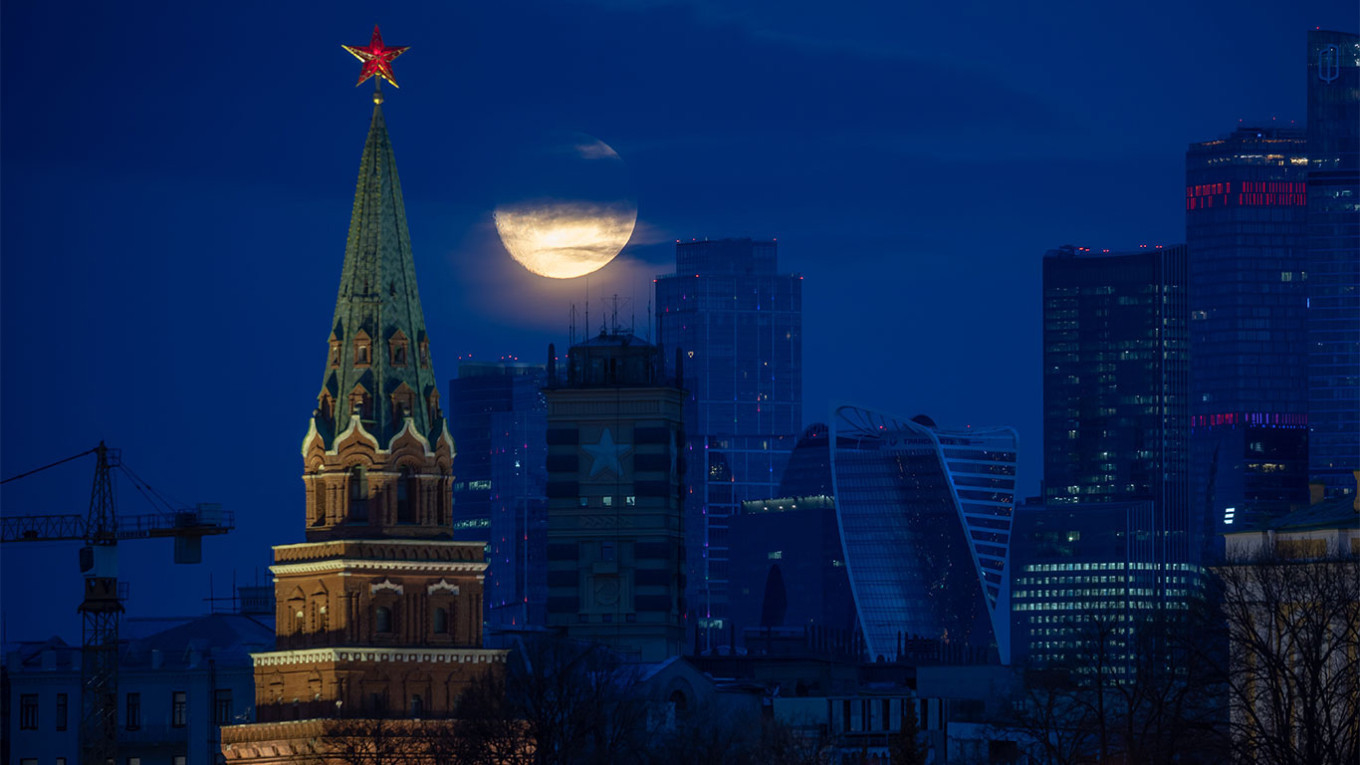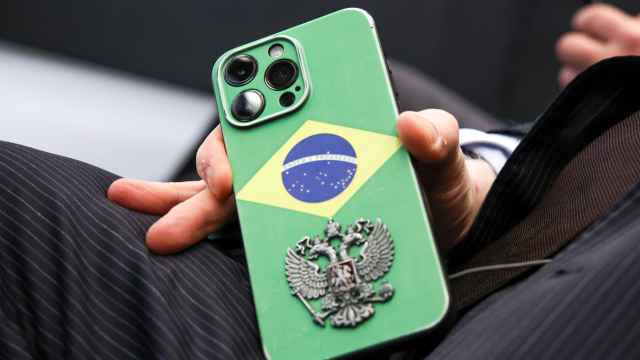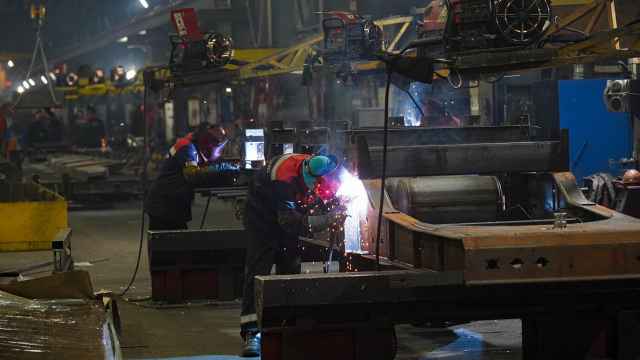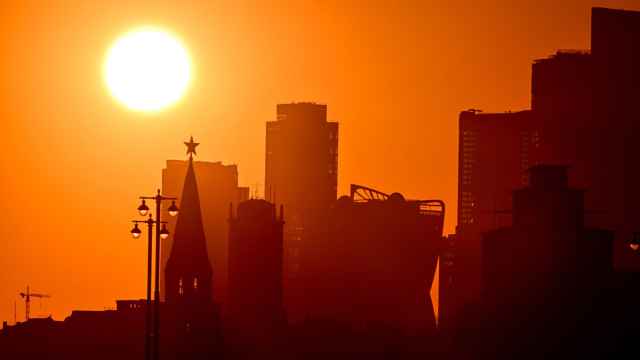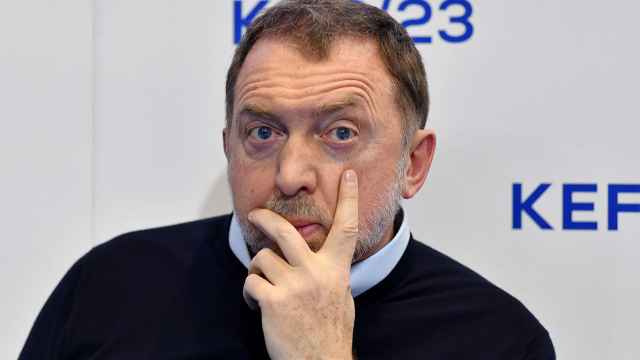Business activity in Russia’s manufacturing sector registered its most significant drop since the early months of the full-scale invasion of Ukraine, according to new data released by S&P Global.
The Purchasing Managers’ Index (PMI) for Russian manufacturing sank to 47.5, down from 50.2 in May.
Any reading below 50 indicates a contraction.
The decline not only pushed the index into negative territory, but also marked the steepest monthly drop since March 2022, when Russia was in the early phases of its full-scale war and the West hit Moscow with sweeping sanctions.
Three of the past four months have been marked by slowed business activity. Though the PMI briefly rose back into growth territory in May, it dipped again in June as new orders continued to decline.
S&P Global called the fall in orders “sustained” and noted that export demand in particular saw its sharpest drop since March 2022, partly due to the high value of the ruble.
Production has now declined for four consecutive months, with June marking the fastest rate of contraction in over two years.
Surveyed firms cited weak demand and reduced purchasing power among customers as key drivers. On the upside, reduced production and order volumes helped companies clear backlogs more quickly.
In this environment, manufacturers kept price hikes to a minimum, with June seeing the slowest pace of factory price increases since November 2022.
According to the Central Bank’s business monitoring reports, firms planned to raise prices by just 4.4-4.5% annually in the coming three months, with expectations for price growth in the manufacturing sector continuing to decline.
That helped ease pressure on companies themselves. S&P Global found that input cost inflation in June was the lowest since February 2020, just before the Covid-19 pandemic began.
While manufacturers remain hopeful for a rebound in demand and still expect modest production growth over the next year, overall sentiment has slipped to its lowest level since October 2022.
The Central Bank’s own Business Climate Indicator (BCI) also fell in June to its weakest reading since December 2022.
"Judging by the mood in the business community, we’re on the brink of a recession," Economic Development Minister Maxim Reshetnikov warned at the St. Petersburg International Economic Forum earlier this month.
However, Central Bank Governor Elvira Nabiullina and Finance Minister Anton Siluanov dismissed those concerns.
Nabiullina maintains that the economy is not in recession but rather recovering from being in an overheated state, with taming inflation remaining the top priority.
Diagnosing the current state of Russia’s economy has become increasingly difficult, noted Alfa-Bank’s Chief Economist Natalia Orlova in a recent op-ed in Forbes, describing a “two-tiered structure of economic activity” where conditions vary sharply across sectors.
“The increasingly uneven structure of growth is making it harder to interpret the economic picture,” Orlova said. “Some companies are understandably reporting worsening market conditions, while others... are quickly increasing output and wages.”
Amid the uneven growth across sectors, Orlova argued, labor market data will be a better indicator of an economic slowdown.
Labor shortages were the second most frequently cited concern in the Central Bank’s June surveys, mentioned by 22% of respondents.
Despite the worsening economic indicators, official unemployment remains near record lows. The jobless rate stood at just 2.3% in April, according to the most recent government data.
Still, June saw the sharpest reduction in factory employment since April 2022, as companies adjusted staffing levels in response to dwindling orders, according to S&P Global. With layoffs accelerating and forward-looking indicators softening, Russian industry appears to be facing growing pressure from both domestic and external forces.
A Message from The Moscow Times:
Dear readers,
We are facing unprecedented challenges. Russia's Prosecutor General's Office has designated The Moscow Times as an "undesirable" organization, criminalizing our work and putting our staff at risk of prosecution. This follows our earlier unjust labeling as a "foreign agent."
These actions are direct attempts to silence independent journalism in Russia. The authorities claim our work "discredits the decisions of the Russian leadership." We see things differently: we strive to provide accurate, unbiased reporting on Russia.
We, the journalists of The Moscow Times, refuse to be silenced. But to continue our work, we need your help.
Your support, no matter how small, makes a world of difference. If you can, please support us monthly starting from just $2. It's quick to set up, and every contribution makes a significant impact.
By supporting The Moscow Times, you're defending open, independent journalism in the face of repression. Thank you for standing with us.
Remind me later.


